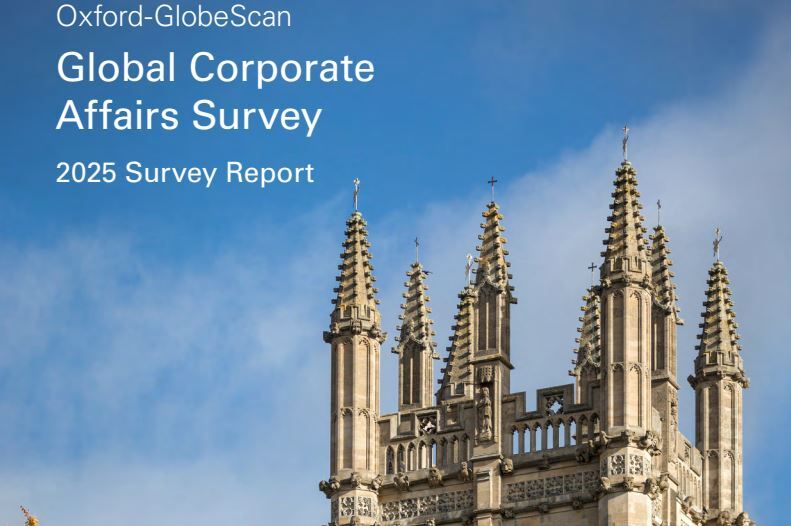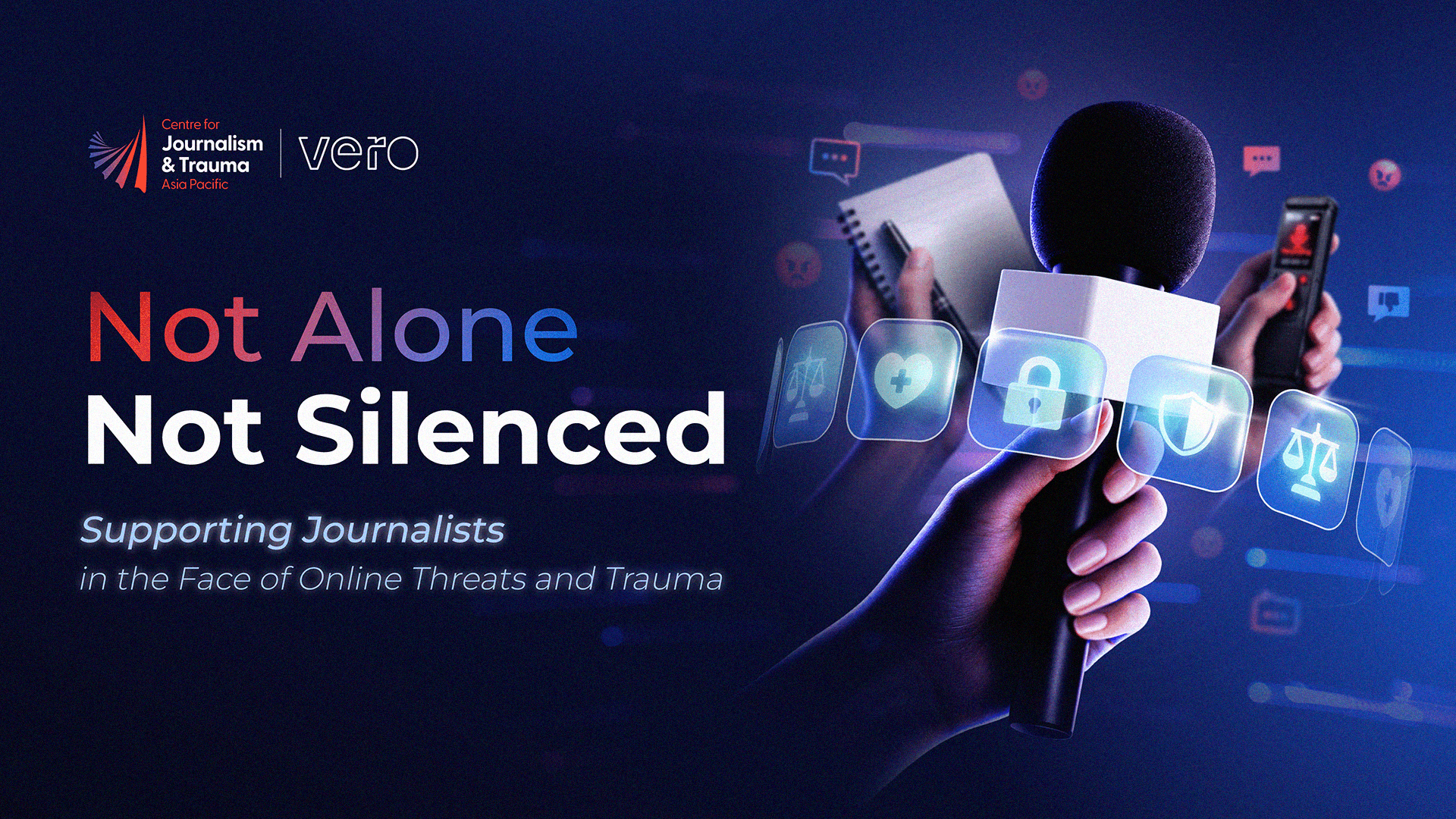The University of Oxford and GlobeScan, a global insights and advisory consultancy, has released its sixth annual Oxford-Globescan Global Corporate Affairs Survey Report.
Conducted annually during the first quarter of the year, the study aims to provide the latest overview of opinions, trends, and challenges through the lens of corporate affairs practitioners. This year's report captures the views and insights of 245 senior professionals surveyed between February and March 2025 on issues and themes of relevance to the function.
The 2025 report reveals that geopolitical instability poses as the number one threat for corporate affairs professionals, followed by macroeconomic volatility and regulatory uncertainty. Emerging technologies, particularly AI, are seen as the most significant short-term opportunity, while sustainable growth continues to gain traction. ESG commitments are shifting in response to political pressures, especially in Western markets, and the function is refocusing on fundamental practices like stakeholder engagement and trust-building amid rising uncertainty.
Rupert Younger, Director of the Oxford University Centre for Corporate Reputation, said: "It is, perhaps, unsurprising that geopolitics has continued to dominate the corporate affairs agenda in this year's survey. Corporate affairs professionals operate on the front line on these issues within corporations, being asked to identify emerging risks and develop corporate positioning and engagement approaches that meet the requirement for clarity in often very uncertain environments."
Key findings
Geopolitical risk remains the dominant concern for Corporate Affairs professionals
Since 2020, geopolitical instability has consistently topped the risk agenda, except in 2021 when ESG performance took precedence. In 2025, 76 per cent of corporate affairs practitioners ranked it as their top concern, up from 47 per cent in 2020.
Drivers include ongoing conflicts in Europe and the Middle East, rising East-West tensions, and renewed populism, including Donald Trump's return to the presidency and new tariffs. This anxiety is especially acute in regions and sectors heavily impacted by global trade and regulation.
Macroeconomic instability and regulatory uncertainty are rising in importance
Political divisions over the role of business and the increased use of tariffs have contributed to macroeconomic volatility becoming the second most-cited risk. Regulatory pressures have also surged, especially in Europe, where standardisation and compliance expectations are tightening. These changes are reshaping the risk landscape across industries and geographies.
AI and innovation remains the strongest short-term opportunity
Corporate affairs practitioners view emerging technologies, particularly AI, as essential for maintaining competitiveness, improving efficiency, and future-proofing operations, although functional usage remains basic and tactical.
Sustainable growth strategies have also gained traction, rising in priority across all regions. Meanwhile, economic growth and upliftment have climbed significantly, showing that businesses still aim to drive impact despite global turbulences.
ESG priorities are shifting under political pressure, especially in Western markets
Climate change, diversity and inclusion, and governance still top the ESG agenda, but a split is emerging. While some companies are stepping back from public DEI commitments due to populist backlash, others are doubling down.
Political and regulatory shifts have elevated governance as a reputational risk, especially in Asia Pacific and Latin America. Meanwhile, corporate advocacy on societal issues is in decline, particularly in North America.
Corporate Affairs is refocusing on trust, stakeholder engagement, and reputation strategies
In response to growing uncertainty and political polarisation, the function is returning to human-centred fundamentals, such as direct stakeholder engagement and proactive communication. Stakeholder mapping, prioritising, and building relationships are becoming central responsibilities. As a survey respondent from Kenya noted: "Going back to the basics, no matter what tools, apps or tech is in place, it will never beat a face-to-face engagement for building trust."
Corporate affairs teams are increasingly collaborating with senior leaders, especially the CEO and board, but continue to face challenges in clearly articulating their value to the broader business.
The full report can be accessed here.

Research
Study Highlight: Oxford-GlobeScan Global Corporate Affairs: 2025 Survey Report
by Telum Media
4 September 2025 4:00 PM
4 mins read
Telum Media creating connections
Get in touch to learn more
Next story
PRCA Mena Awards 2025 set in November
You might also enjoy
Industry update
Vero has entered into a partnership with the Centre for Journalism and Trauma Asia Pacific (CJT), under which the agency will provide pro bono communications and implementation support for CJT’s “Not Alone. Not Silenced” campaign.
The campaign aims to support journalists in managing online hate speech, cyberbullying, and threats through a 10-month fellowship programme, including webinars, in-person workshops, and remote mentorship.
“Journalists today are working under increasing pressure, both professionally and emotionally,” said Nitikarn Ladasathean, Media Relations Director at Vero in Thailand. “Through this collaboration with the Centre for Journalism and Trauma Asia Pacific, Vero aims to contribute to a more sustainable media ecosystem by supporting journalists beyond just the stories they produce.”
13 February 2026 3:00 AM
1 min read
Moves
Jennifer Durante has commenced a new chapter as Head of Communications at SpinalCure Australia. She continues her career in the not-for-profit space after almost a decade at Melanoma Institute Australia, most recently as Director, Community & Engagement.
Backed by over 30 years' experience, Jennifer started her career in journalism before swapping to comms. She's spent two decades operating her own communications consultancy and has served clients across various sectors, including government, health, and construction.
Jennifer said: “I am delighted to join the SpinalCure Australia team at a pivotal time for the groundbreaking Australian-led research into finding a cure for spinal cord injuries.
“Raising community, government and philanthropic awareness about this critical area of medical and scientific research, as well as the extraordinary vision of SpinalCure Australia which is fuelling this research, will help change the future for those with spinal cord injuries.”
13 February 2026 2:58 AM
1 min read
Moves
Kathleen Quéré has taken on a new role as PR and Community Manager at InvestorKit. She has been at the investment firm since September 2025, initially as Content and Community Manager, following a stint at The PR Hub.
Kathleen brings PR experience built up over the years across various agencies, including We Are Different, COMPASS STUDIO, Agent99 Public Relations, and The 6AM Agency.
13 February 2026 2:55 AM
1 min read


